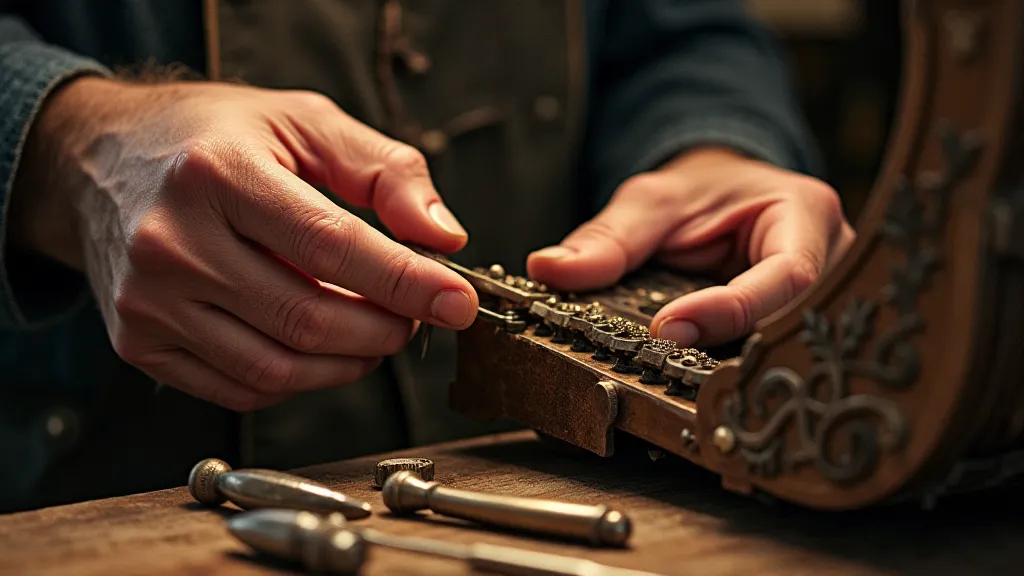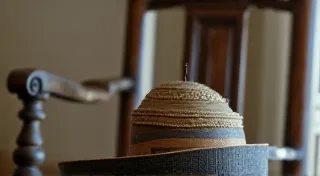Breathing Life into 'Fixin'' - Beyond the Simple Meaning
There’s a certain resonance to the sound of an antique accordion. A wheezing sigh, a rusty promise of melodies past, and the echo of hands that knew how to coax joy from its bellows. It’s a sound that connects you not just to a piece of machinery, but to generations of musicians, traveling salesmen, and family gatherings across the Appalachian landscape. And within that sound, nestled amongst the chords and scales, you can often hear the unique cadence of the local dialect, a linguistic tapestry as rich and layered as the instrument itself. One particularly fascinating thread in that tapestry is the word 'fixin'' – a deceptively simple word that unlocks a surprising depth of understanding about Appalachian culture and language.

More Than Just 'About To'
Most outsiders encountering the word 'fixin'' simply understand it as meaning “about to.” “I’m fixin’ to go to the store” equates perfectly with “I’m going to the store.” But to limit 'fixin'' to this single definition is to miss the profound versatility that defines it within the Appalachian dialect. It’s a grammatical chameleon, shifting its function and meaning depending on the context. It can function as a preposition, a gerund, even a noun, all while retaining that unmistakable Appalachian inflection.
Consider this: “I’m fixin’ a meal.” This doesn't mean you’re planning to prepare a meal; it means you’re *in the process* of cooking it. Or, “What are you fixin’?” isn’t a question about your future plans; it’s a direct inquiry about what you’re doing *right now*. The subtle shift in tense and action – the implication of ongoing activity – is what sets 'fixin'' apart.
A Historical Glimpse: Language as a Shield
The isolation that characterized much of Appalachia for centuries played a critical role in preserving these unique linguistic patterns. Geographically separated from major urban centers, communities developed their own ways of communicating, drawing heavily on Scots-Irish and English dialects brought over centuries ago. This wasn't about intentional divergence, but rather a natural evolution fostered by limited outside influence.
Furthermore, the historical marginalization of Appalachian communities – often stigmatized and dismissed – might have unconsciously reinforced these linguistic differences. Speaking in a way that distinguished them from the dominant culture could have been a form of cultural preservation, a quiet assertion of identity in the face of prejudice. The nuances of 'fixin'' and other dialectal markers became subtle signals of belonging, a way to identify kin and maintain a sense of shared heritage.
The Art of Restoration: Echoes of the Past
Restoring an antique accordion, much like understanding the nuances of Appalachian dialect, is an exercise in patience and reverence. It’s not merely about repairing a broken instrument; it’s about preserving a piece of history, connecting with the hands that built it, and honoring the music it once produced. A cracked bellows isn’t just a technical issue; it’s a visible sign of years spent singing old ballads and lively reels. A tarnished metal key isn't just a cleaning project; it's a connection to the countless tunes played upon it.
Similarly, appreciating 'fixin'' isn’t about judging it as “incorrect” or “uneducated.” It's about recognizing the logic and beauty of a system honed by generations of usage. It's about understanding that language, like an accordion, is a living entity, constantly evolving and adapting to the needs of its users. A good accordion restorer doesn’t impose their own aesthetic; they strive to understand the original craftsman’s intent and meticulously recreate what was lost. Likewise, a genuine appreciation of Appalachian dialect means listening with an open mind and recognizing the wisdom embedded within its unique expressions.

Beyond Grammar: A Window into the Soul
The beauty of 'fixin'' isn't just in its grammatical flexibility; it's in what it reveals about the Appalachian worldview. It embodies a sense of immediacy and a focus on the present moment. There's a refreshing lack of formality and a genuine warmth that permeates its usage. It speaks to a culture that values action and directness, where the focus is on what's happening *now*, not on abstract future plans.
Growing up hearing my grandmother use 'fixin',' I recall the comfort it brought, the sense of being grounded in a place and a community. It was a silent acknowledgment of shared experience, a subtle affirmation of belonging. And it’s that sense of connection—to history, to family, and to a way of life—that makes appreciating this seemingly simple word so profoundly meaningful.
Preserving the Legacy: Listening and Learning
The preservation of Appalachian dialect, and the understanding of its subtle nuances like 'fixin',' isn’t just a linguistic exercise; it’s a matter of cultural responsibility. As the region continues to evolve and interact with the wider world, these unique linguistic expressions are at risk of being lost.
The best way to preserve them is to listen – to truly listen – to the voices of Appalachia. To engage with the language not as an outsider looking in, but as a curious learner eager to understand its beauty and its significance. It’s a conversation, a sharing of stories, and a recognition that even the smallest words can hold the weight of generations.

So, the next time you hear someone say they’re 'fixin'' to do something, take a moment to appreciate the richness and complexity behind those two simple words. It's more than just about the future; it's about the present, the past, and the enduring spirit of Appalachia.





